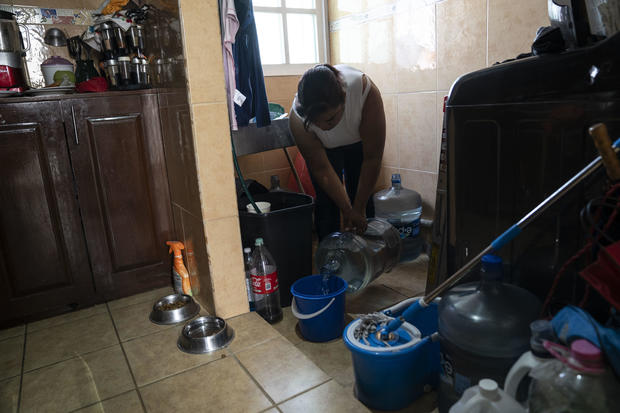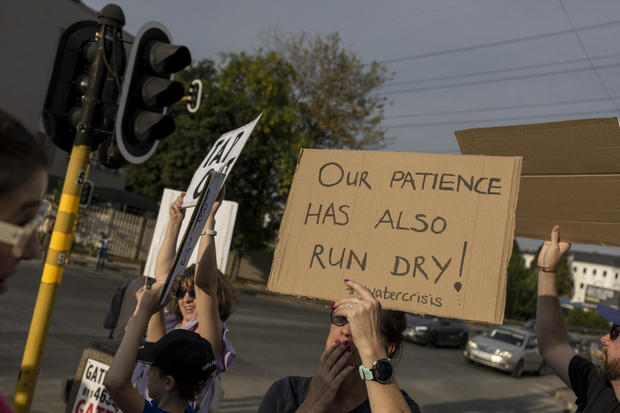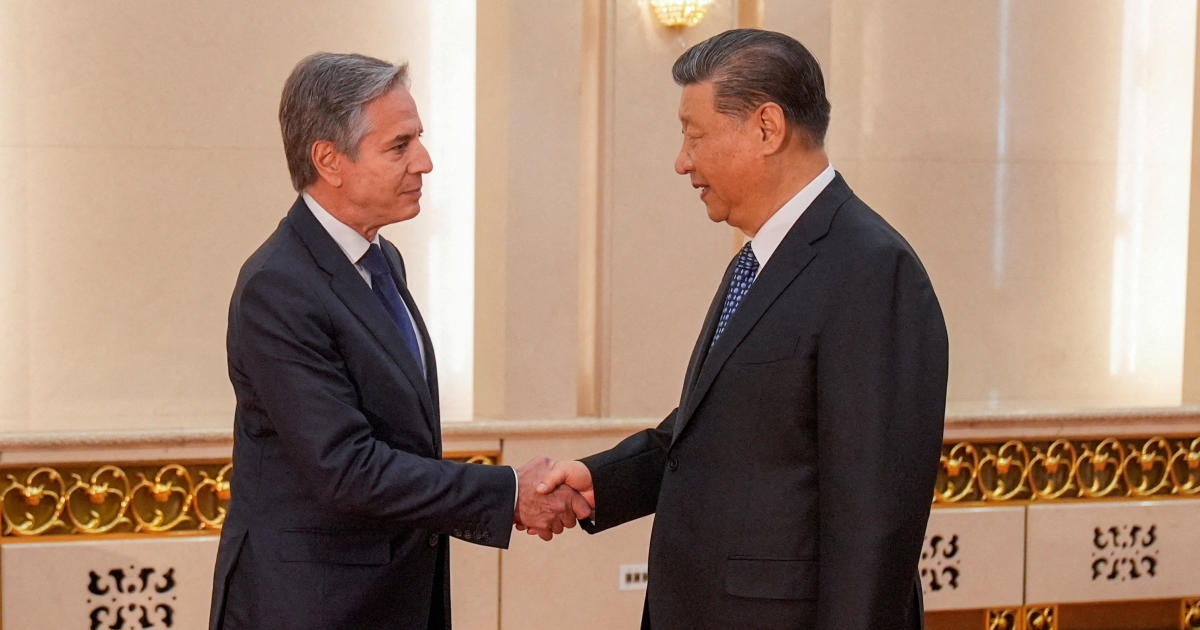Major cities are running out of water. A new World Water Day report says it could worsen global conflict.
March 22 marks World Water Day, which is a day meant to highlight the importance of fresh water for life on Earth. But this year, it comes as major cities across the world are running out of their supply, and a new United Nations report shows that if that problem continues to spread, so does the risk of global conflict.
Within just the past few weeks, two heavily populated cities in the world saw their taps run dry. In Mexico City, officials said at the beginning of March that they fear a "day zero" could be coming when their water system no long has enough water to supply its nearly 22 million residents. That day, they said, could come as soon as June 26, and last until September.
Many have already gone "days, if not weeks, without running water in their houses," CBS News contributor Enrique Acevedo said.
It's a problem also being felt in Johannesburg, the largest city in South Africa. There, thousands of people have been lining up for whatever water they can get as extreme heat shrinks their reservoirs and decades of neglect have allowed infrastructure to crumble. Local officials have said that if conservation efforts are not escalated soon, they could face a total collapse of the water system.
Sicily is also facing diminishing supplies.
"There is no water," Rosaria, a resident of Agrigento, told Reuters.
Another local, Antonio, told the outlet that it's been a "long-standing issue."
"Water in Agrigento is gold," he said.
The issue appears to be escalating worldwide, and a new United Nations report published this week explains that if it does, so will global tensions at a time that are already proving difficult.
"As water stress increases, so do the risks of local or regional conflict," Audrey Azoulay, director-general of UNESCO said in a news release on Friday. "UNESCO's message is clear: if we want to preserve peace, we must act swiftly not only to safeguard water resources but also to enhance regional and global cooperation in this area."
What the report says
The 2024 World Water Development Report says that 2.2 billion people currently don't have access to safely managed drinking water, and that as of 2022, about half of the entire global population experienced at least temporary severe water scarcity.
As global temperatures increase, largely due to the burning of fossil fuels, those numbers are expected to worsen, as higher temperatures will also bring more frequent and intense extreme weather events, including drought.
But climate change isn't the only factor. The report says that freshwater consumption has been growing by just under 1% every year, with agriculture accounting for roughly 70% of freshwater withdrawals, and industrial and domestic uses accounting for 20% and 10%, respectively.
The U.N. has established a set of targets to ensure that water – a vital source of life on Earth – remains available. Those targets say that by 2030, there should be, among other things, universal and equitable access to safe and affordable drinking water, adequate and equitable sanitation and hygiene, reduced water pollution, and increased water-use efficiency.
But according to the World Water Day report, none of those targets "appear to be on track."
"Four out of five people lacking at least basic drinking water services lived in rural areas. The situation with respect to safely managed sanitation remains dire, with 3.5 billion people lacking access to such services," the report's executive summary says. "Cities and municipalities have been unable to keep up with the accelerating growth of their urban populations."
But it's not just individual and communal well-being that is impacted by the problem. The U.N. says having safe, plentiful and affordable water resources is directly linked to global prosperity and peace. Water doesn't "trigger" conflict, the report says, but recent events have seen civilian water infrastructure attacked and unrest itself has sparked issues with vulnerable groups getting access to water supplies.
"Water nurtures prosperity by meeting basic human needs, supporting health and livelihoods, underpinning food and energy security, and defending environmental integrity and economic development," the report says.
Women and girls are those immediately impacted by water shortages, as these demographics are often relied upon for gathering whatever supply they can. This can occupy several hours a day, and in many cases, means less time in school and potentially, putting them more at-risk of safety issues.
In Somalia last year, for example, an estimated 43,000 people died from the nation's longest drought on record, half of them being children. That happened amid ongoing battles with al Qaeda affiliate al-Shabaab. In Gaza, officials have said that the conflict with Israel has also weakened water supplies.
It's not just cities on other continents. The story has also started to unfold in the U.S., with the Colorado River serving as a prime example of what could come. Many reservoirs served by the Colorado River faced serious shortages last year, emptying reservoirs and further complicating where dwindling supplies should be allocated – a war that broke out into several battles between states, sectors and communities.
"The saying is: whiskey's for drinking and water's for fighting and that old adage is getting to become more and more of a realization as we move forward here," Bob Brachtenback, who lives on a Colorado farm, told CBS Colorado in December.
The U.N. report makes clear that the relationship between conflict and basic human needs is complex, but nonetheless linked. What it boils down to, they signify, is that if the world does not rapidly work to address dwindling water resources, global issues regarding wars, agriculture, migration and other aspects that allow humanity to prosper, will only intensify.






